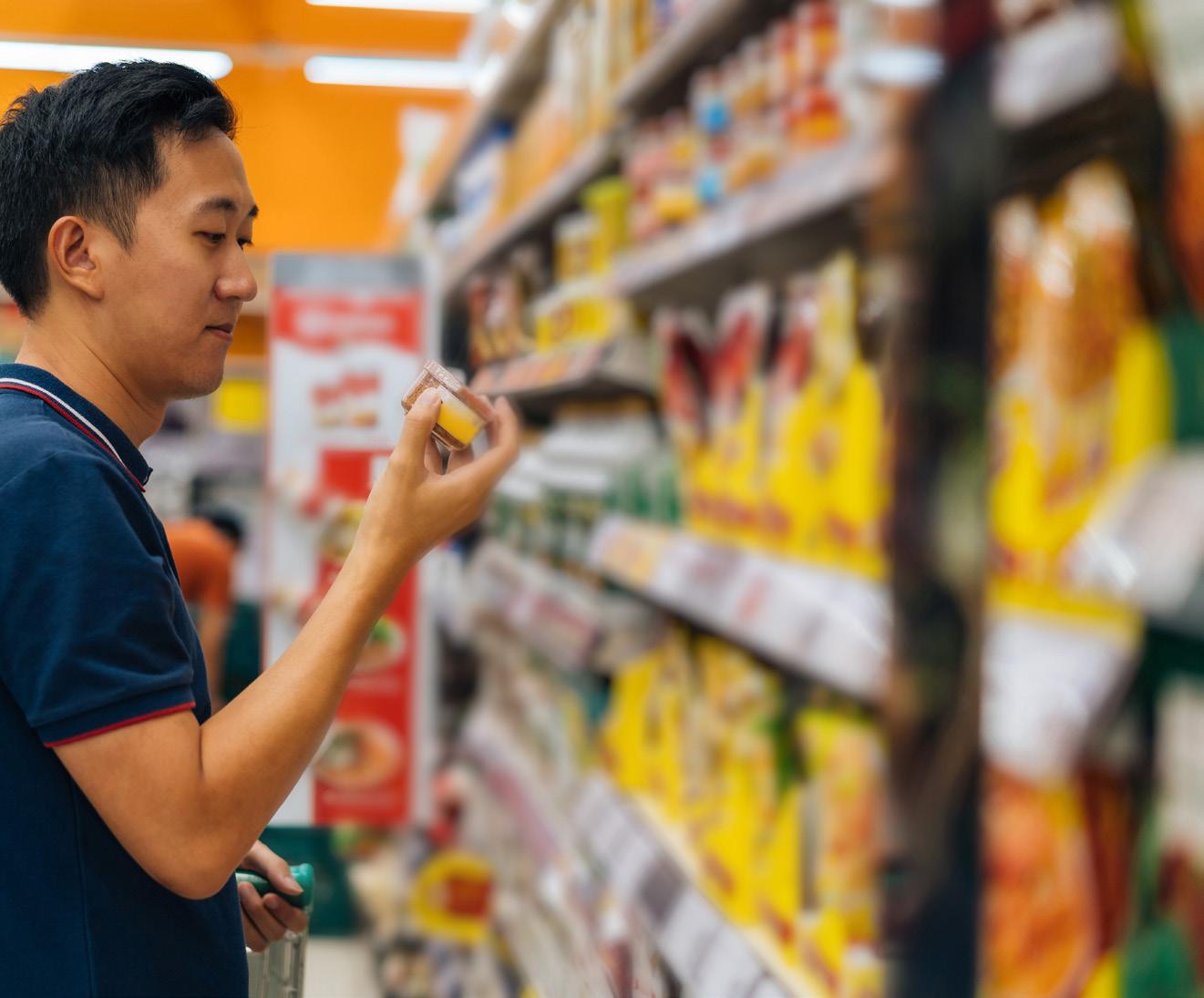
2 minute read
Taste first, think second: Consumers in China want products that challenge their sensory perceptions
74%
of consumers in China say that they like food and drink with new and unusual/exotic flavours (2020)
Source: Flavours, Textures & Colours survey – 2020 (2,000 respondents)
Proportion of consumers who say that they are more conscious about their immune health as a result of COVID-19 (February 2021) Top five reasons for liking food and drink with new and unusual/exotic flavours (2020) Consumers who like new and unusual/exotic flavours
55% 56% 67% 67% 72%
I like to be experimental when cooking I find experimental and exotic flavours make a product more exclusive
Source: Flavours, Textures & Colours survey – 2020 (2,000 respondents)
I deem myself adventurous and like to try new flavours I like to try new flavours from around the world I like to try new flavours from specific regions from countries around the world
The earth is clear: Consumers in China want brands to do more to address the state of the environment
Over the last couple of decades, consumers have become highly concerned about the state of the environment. Indeed, concerns towards the environment in Asia are often higher than in many European countries, which can be attributed to consumers witnessing the damage done to the planet because of westernisation and industrialisation first-hand. As they become more educated and concerned about a variety of environmental issues, consumers will be concerned that the damage done to the planet is irreversible. This will have implications on the quality of life for current and future generations. In addition, consumers have also questioned whether the state of the environment is something that contributed to the damage caused by COVID-19 on a global scale.
As consumers become more concerned about the state of the environment, they are making changes to their diets and lifestyles in order to behave in a more sustainable manner. Motivations for doing this also include the belief that such changes are also healthier. Consumers are taking several steps to act in a more sustainable way. Whilst a high level of attention is given to the growth of plant-based alternatives, consumers are also engaging in actions such as attempting to reduce food waste and seek out more locally sourced products.
This will result in consumers seeking out brands that they feel mirror their attitudes and outlook on life, especially as consumers feel that big businesses and corporate greed are primarily responsible for damage done to the environment. It will be more important than ever for brands to promote sustainability credentials along the supply chain. In addition, brands will also be expected to monitor the supply chains of suppliers to ensure that they are not engaging in activities that inadvertently undermine sustainability pledges.
While consumers are concerned about the state of the environment, it is important not to overestimate how altruistic they are. Consumers will often prioritise their own immediate need states when purchasing products and will not buy something simply because it is environmentallyfriendly, especially if it is associated with a premium price or compromised taste. As such, brands need to look for ways to take the effort out of acting in a recycling manner, offer incentives for engaging in sustainable behaviours, or position products around offering some additional benefit for the consumer beyond acting in a sustainable manner.










